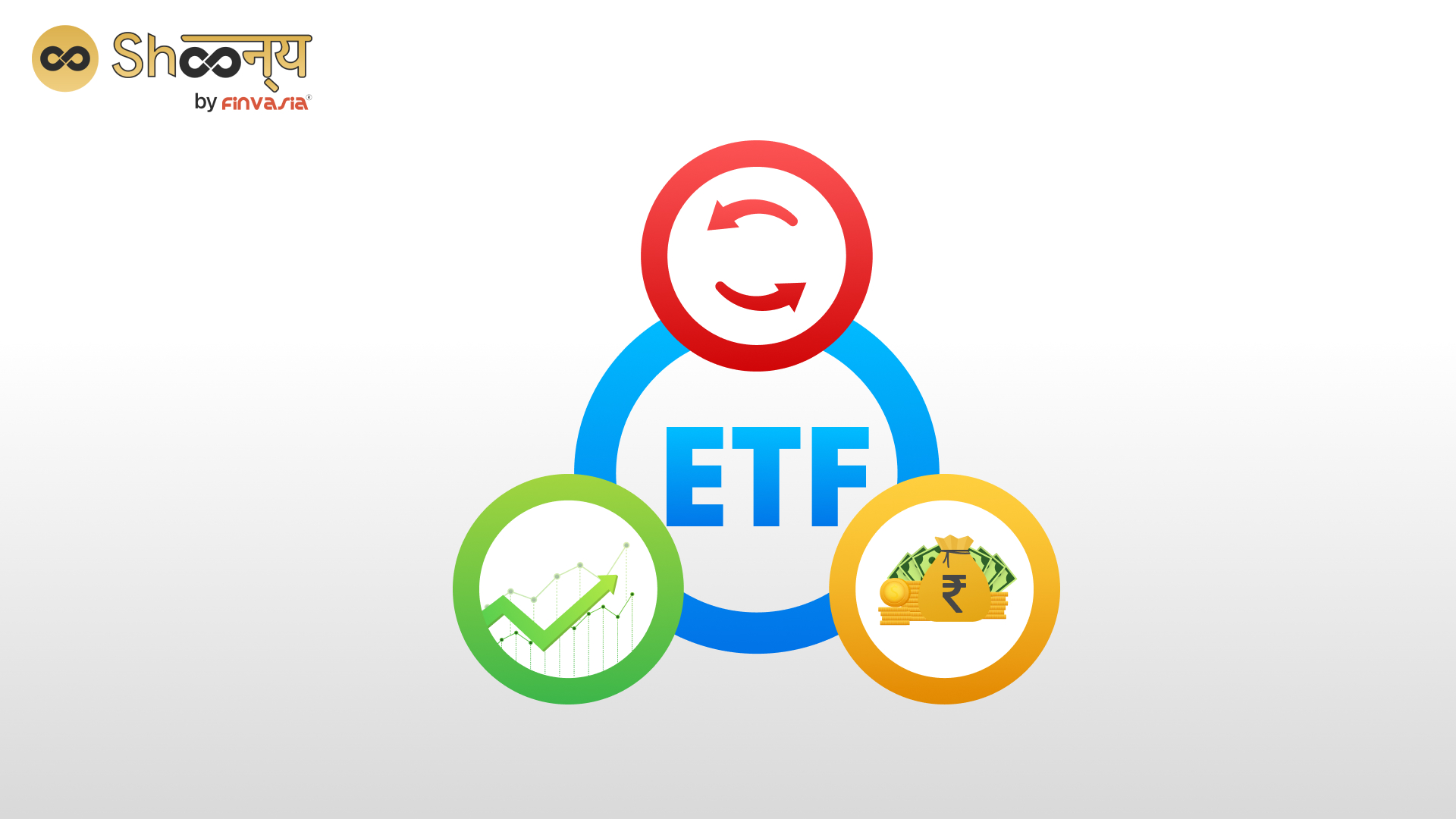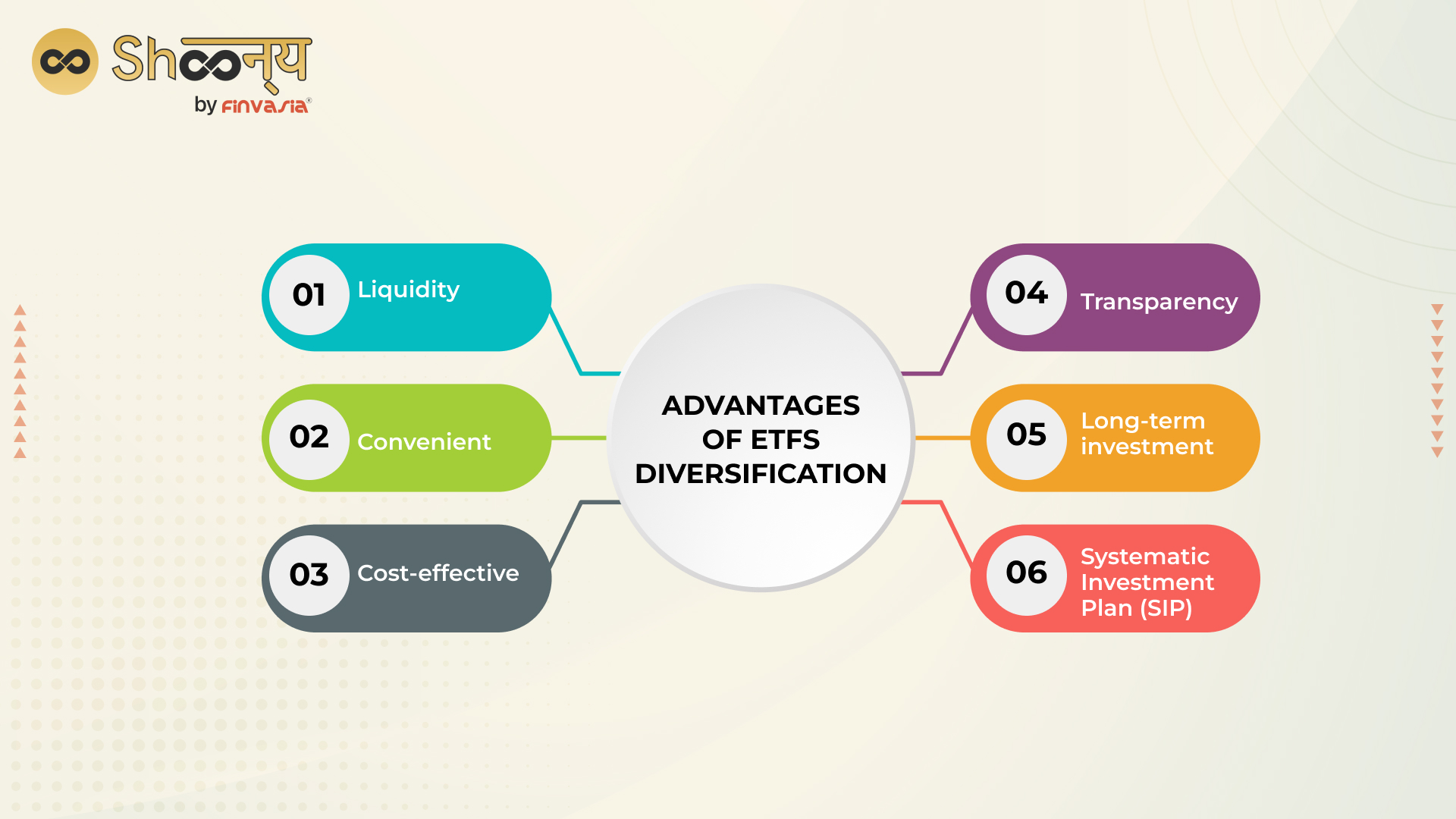NIFTY ETFs: Benefits and Drawbacks

The pulse of India’s economy can be felt through the movement of the stock market. Investors and market watchers closely monitor each beat to determine when to enter and exit the bourses. However, keeping track of each stock and profiting from it is not always possible; this is where the NIFTY ETF comes in.
What is a NIFTY ETF?
NIFTY ETF (Exchange Traded Fund) is a type of investment fund listed and traded on a stock exchange, just like individual stocks. It tracks the performance of a specific index, such as the NIFTY 50 in this case. By investing in it, you can gain exposure to the performance of the companies included in the NIFTY 50 index without having to purchase individual stocks.
NIFTY ETFs are passively managed, which means they aim to track the performance of the underlying index as closely as possible rather than actively trying to outperform it.
Advantages of NIFTY ETFs

NIFTY ETF (Exchange-Traded Fund) is a popular investment option in India that offers several benefits to investors. Here are some of the primary benefits of ETF investment.
- Diversification: It tracks the NIFTY 50 Index, a basket of 50 of the largest and most liquid stocks listed on the National Stock Exchange of India (NSE). By investing in them, you can achieve diversification across multiple sectors and companies.
- Liquidity: NIFTY ETFs are traded on the NSE and can be bought and sold similarly to any other stock. It allows you to buy and sell your holdings anytime during trading hours.
- Convenient: Investing in NIFTY ETFs is a convenient and hassle-free option. You can open a Demat and trading account with a brokerage firm and start investing with as little as INR 500.
- Cost–effective: Compared to actively managed mutual funds, NIFTY ETFs have lower expense ratios, which means you save on fees and keep more of your returns.
- Transparency: NIFTY ETFs are transparent investment products with regularly disclosed portfolios. You can easily track the performance of your investment and make informed decisions.
- Long–term investment: NIFTY ETFs are ideal for long-term investments as they provide exposure to the Indian stock market, which has historically delivered attractive returns over the long term.
- Systematic Investment Plan (SIP): You can invest in NIFTY ETFs through a SIP, which allows you to invest a fixed amount of money at regular intervals. It allows you to average out your investment costs and lessens the impact of market volatility on your portfolio.
Disadvantages of NIFTY ETFs
As with any investment, there are risks associated with investing in NIFTY ETFs. Here are some of the key risks you should be aware of:
- Market risk: The value of your investment in a NIFTY ETF may fluctuate with changes in the stock market. Similar to the underlying stocks in the NIFTY 50 Index, your investment in a NIFTY ETF can decrease in value.
- Tracking error: While NIFTY ETFs aim to track the performance of the NIFTY 50 Index, there may be instances where the performance of the ETF does not accurately match the index performance.
- Regulatory risk: The Securities and Exchange Board of India (SEBI) regulates the Indian stock market, and changes in regulations could affect the performance of NIFTY ETFs.
- Credit risk: In rare cases, the fund manager of a NIFTY ETF may default on their obligations, which could result in a loss to the investors.
Nifty ETF Prices and How to Track Them
The price of a Nifty ETF is directly linked to the underlying Nifty 50 index. As the Nifty 50 index value changes throughout the trading day, the Nifty ETF price also fluctuates accordingly. Investors can monitor these price changes in real-time through various financial news platforms, stock market websites, or brokerage accounts.
Investing in Nifty ETFs
Investing in Nifty ETFs is straightforward and can be done through a brokerage account. Here’s how:
- Select a Brokerage: Choose a reputable brokerage firm that offers access to Nifty ETFs.
- Open an Account: Follow the brokerage’s account opening process, complete the necessary documentation, and fund your account.
- Place an Order: Search for the specific Nifty ETF you want to invest in, enter the desired quantity, and place your order.
- Monitor and Manage: Keep an eye on your Nifty ETF investment, and if needed, make adjustments based on your investment goals.
Final Words
NIFTY 50 has an impressive track in terms of performance. It outperformed over 90% of the mutual fund’s schemes under the large-cap category. However, despite the numerous advantages that ETFs offer, never overlook the risks they entail.
FAQs
Yes, Nifty ETFs can be an excellent choice for beginners due to their simplicity and cost-effectiveness.
Yes, many brokerage apps in India offer the convenience of investing in Nifty ETFs through your smartphone.
The minimum investment amount can vary by ETF, so check with your chosen ETF provider for specific requirements.
Some Nifty ETFs may distribute dividends, while others may reinvest dividends into the fund. Check the fund’s prospectus for dividend distribution details.
Nifty ETFs can be a suitable choice for long-term investors looking for low-cost, low-risk exposure to the Indian equity market. They have a history of delivering competitive returns and align with India’s growth potential.
The choice between Nifty ETFs and mutual funds depends on your preferences. Nifty ETFs are cost-efficient and aim to replicate the Nifty 50 index. Mutual funds offer more options but can come with higher fees and complexities.
______________________________________________________________________________________
Disclaimer: Investments in the securities market are subject to market risks; read all the related documents carefully before investing.








